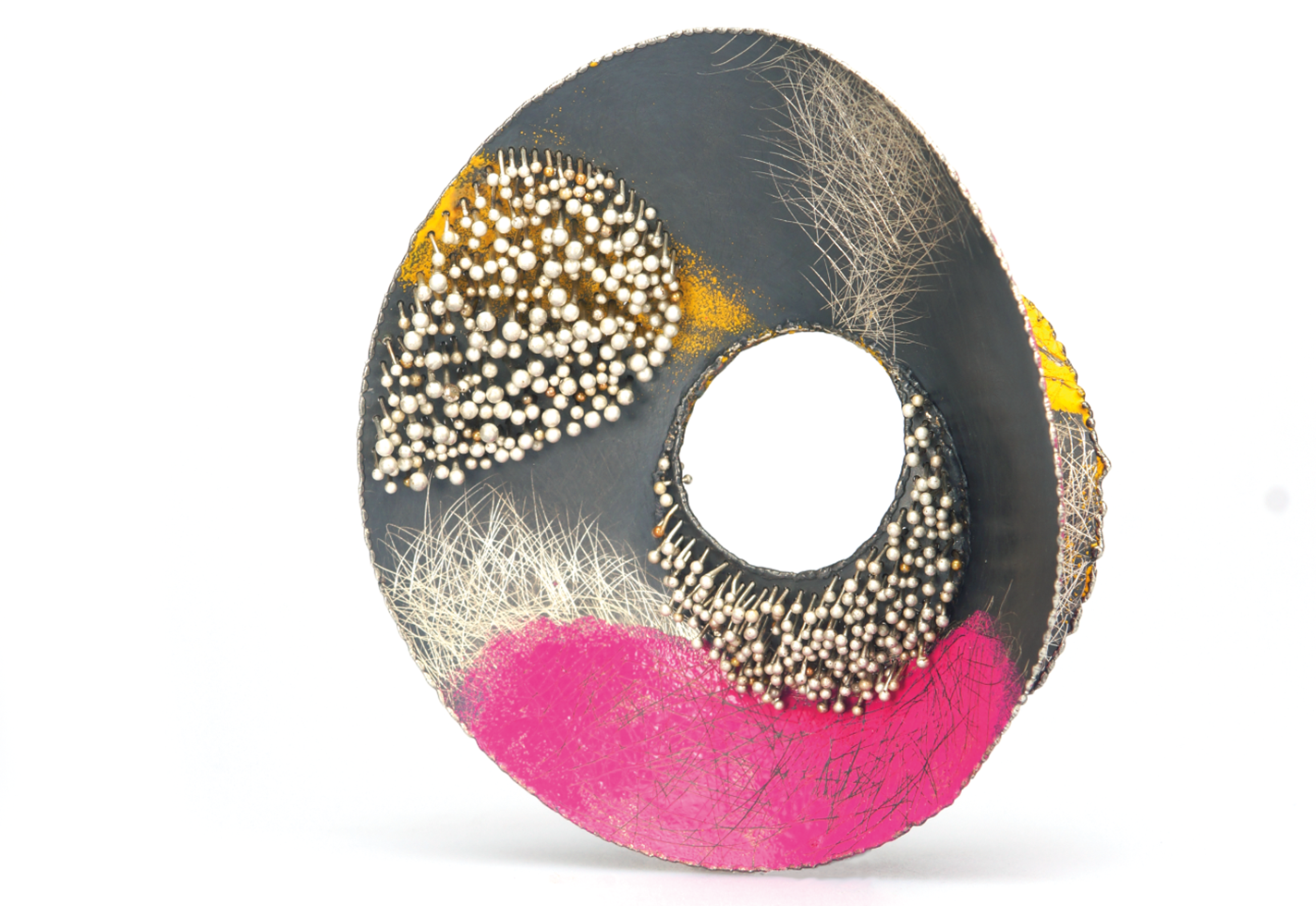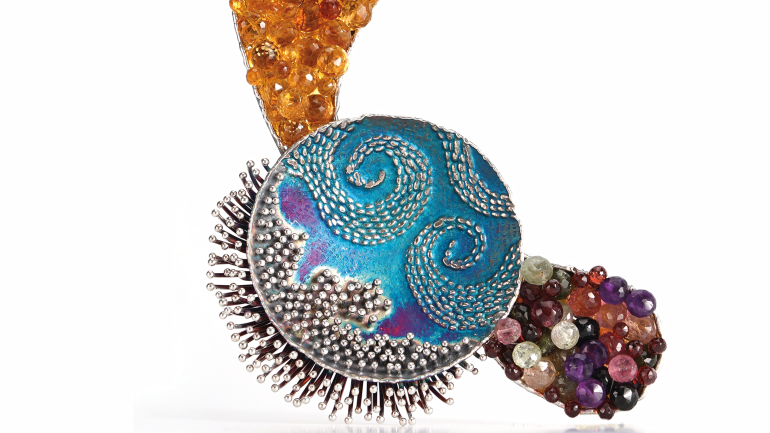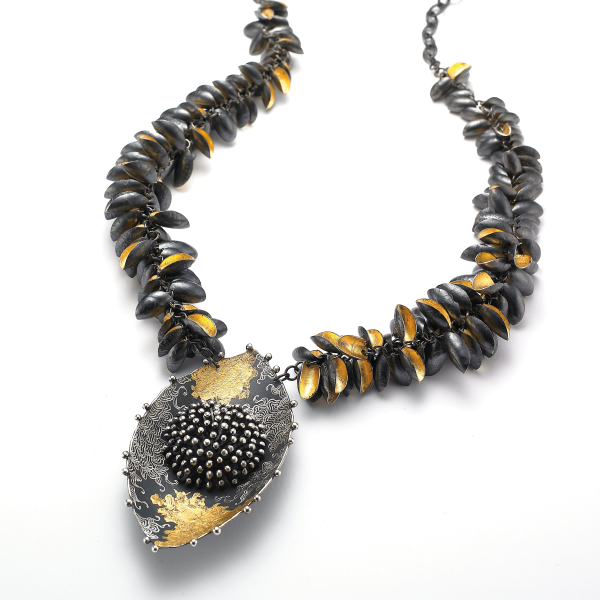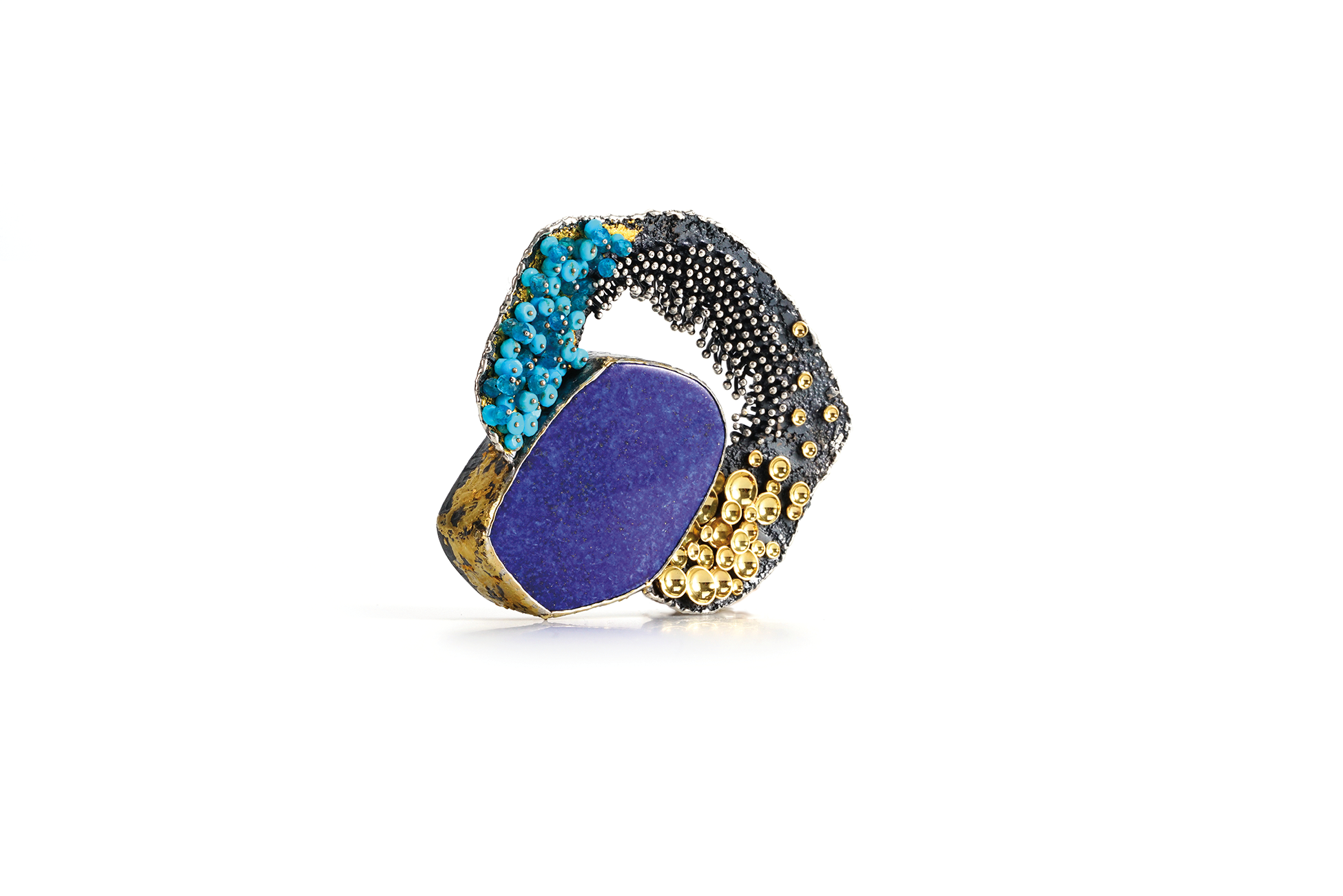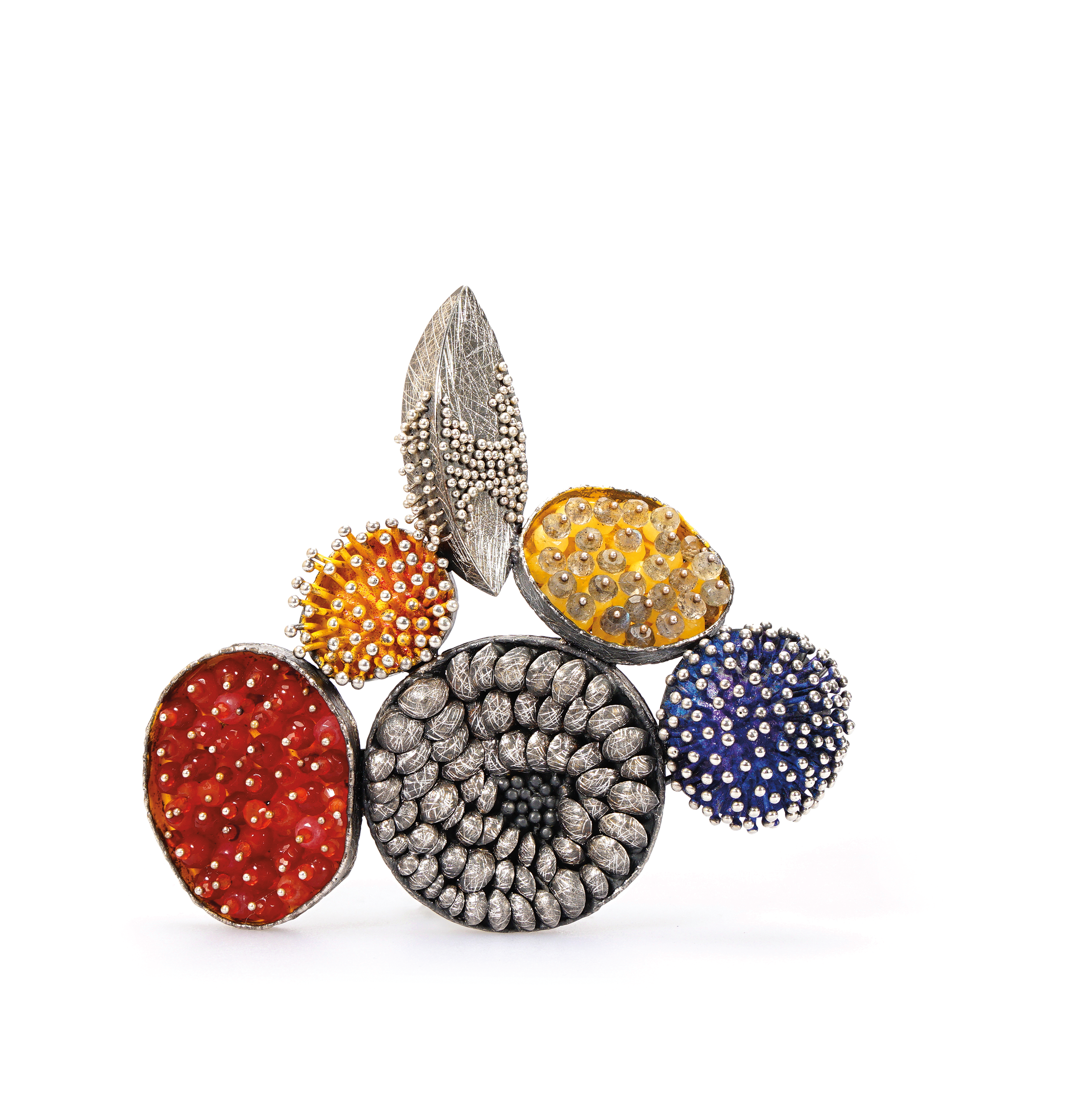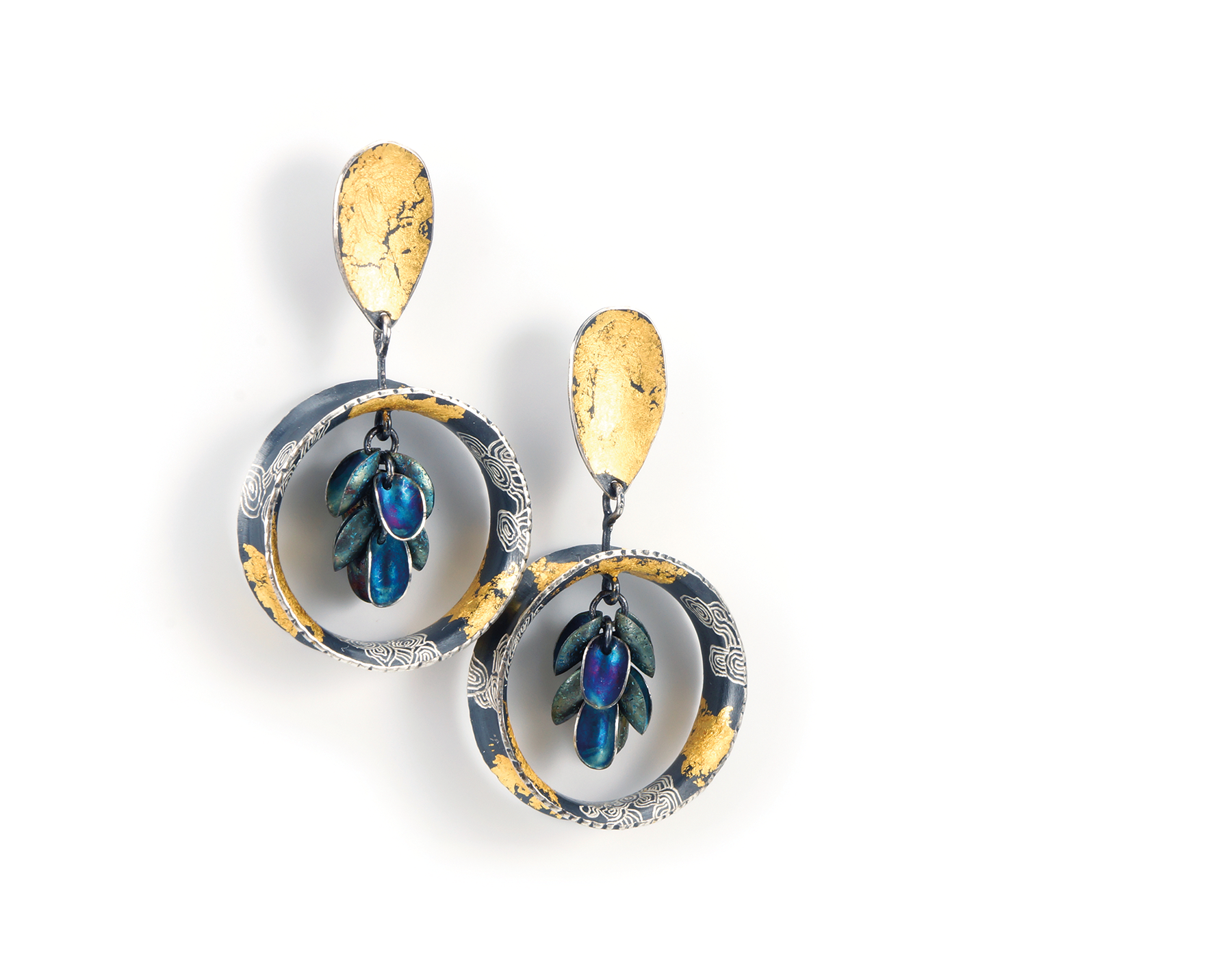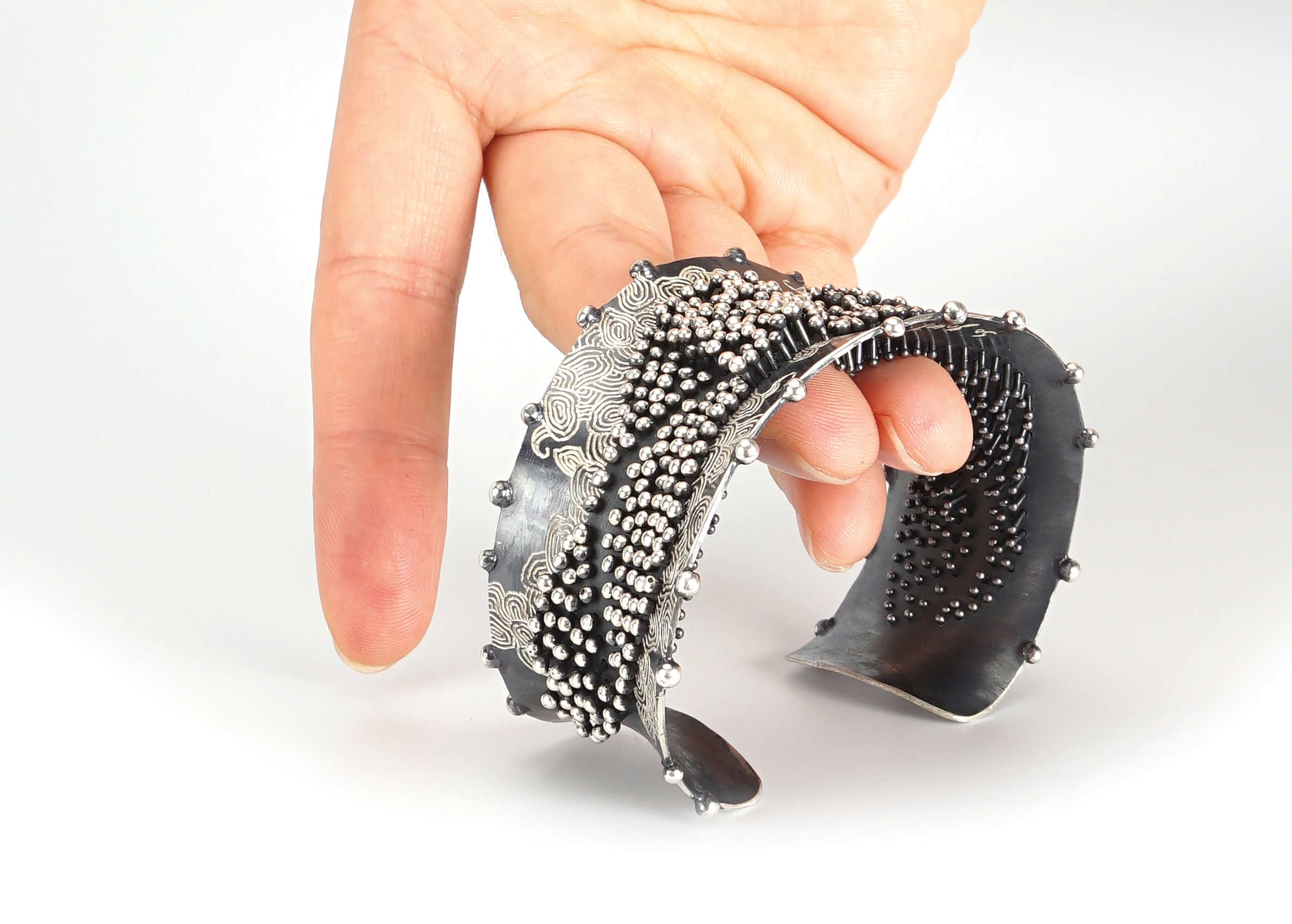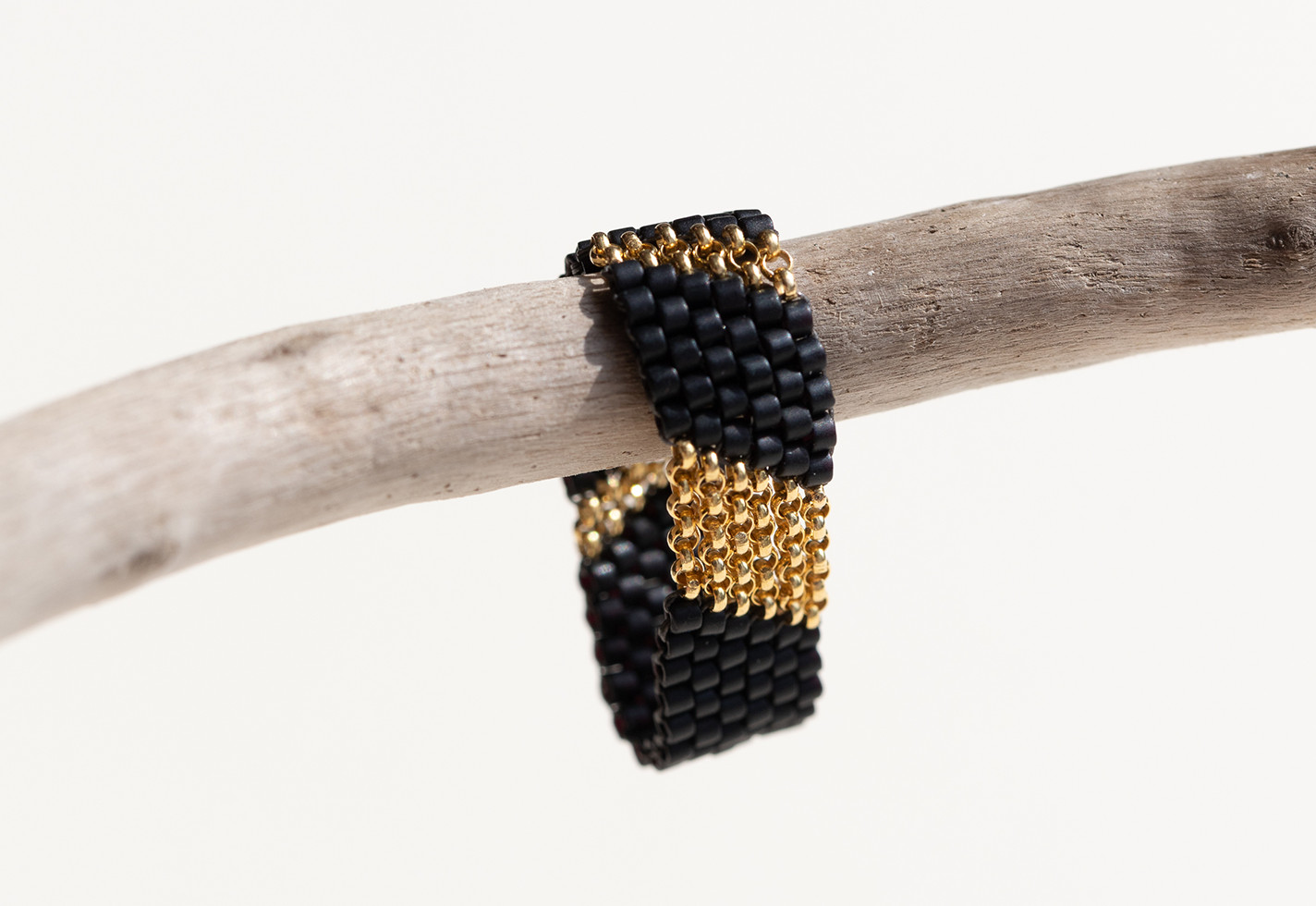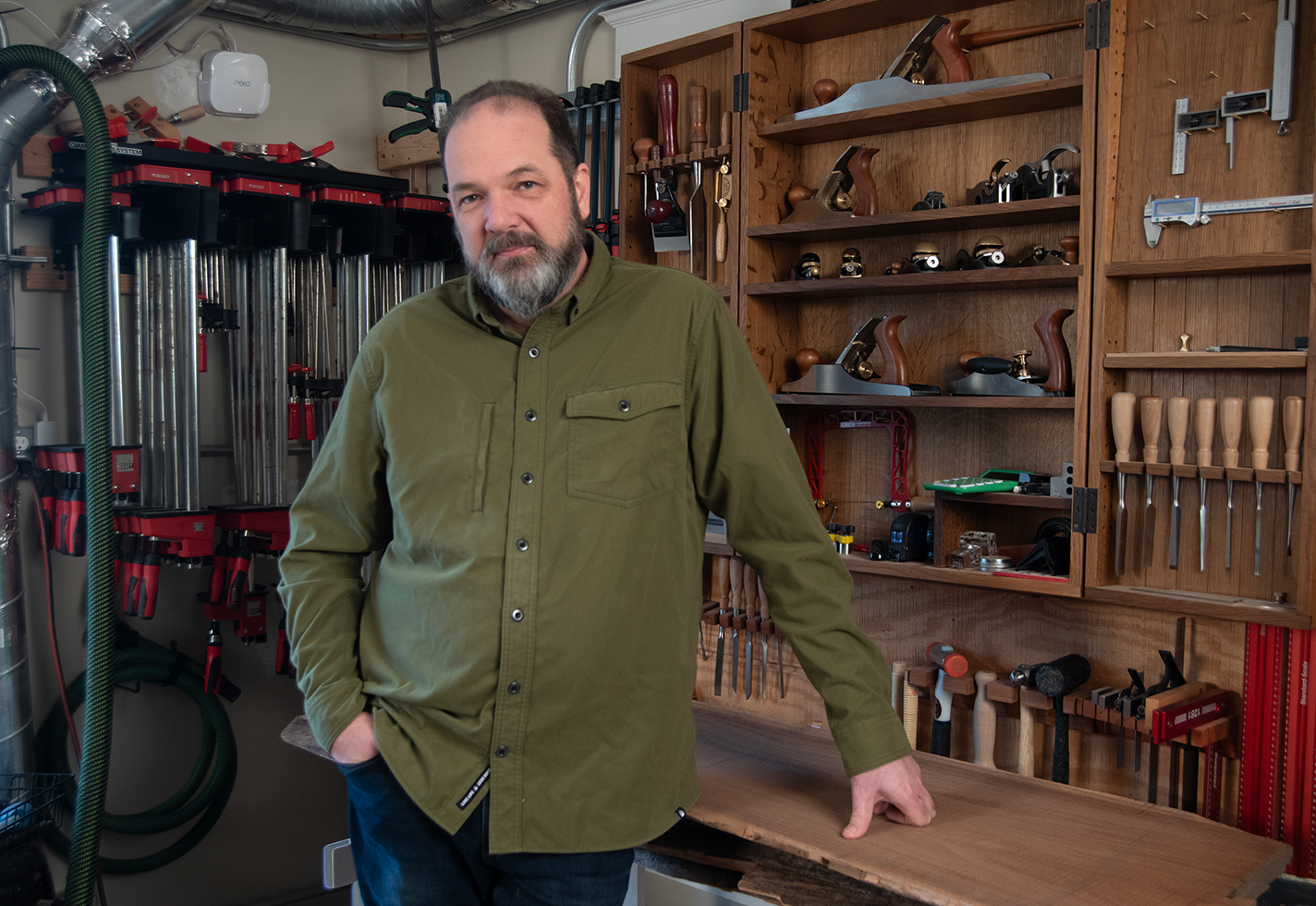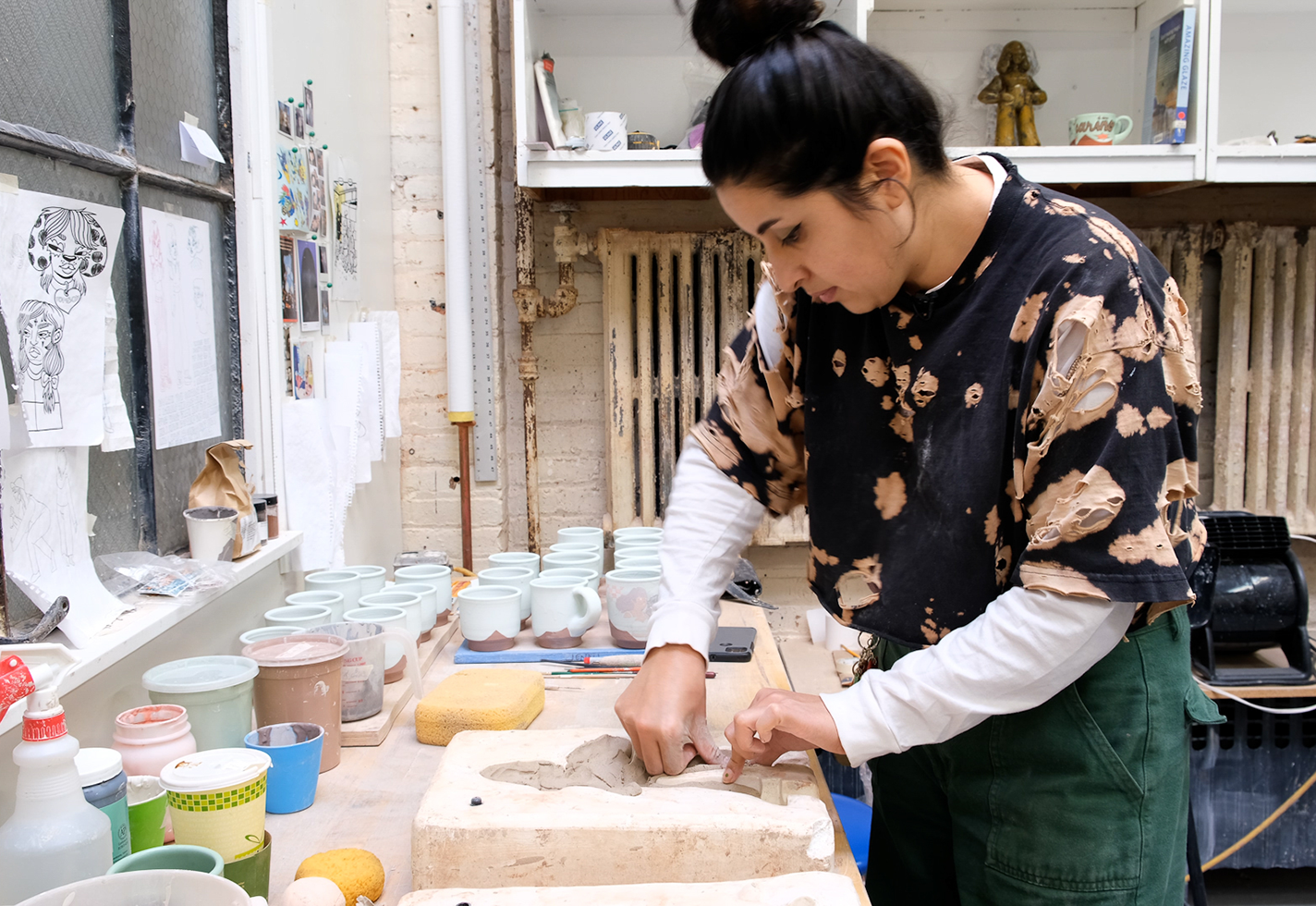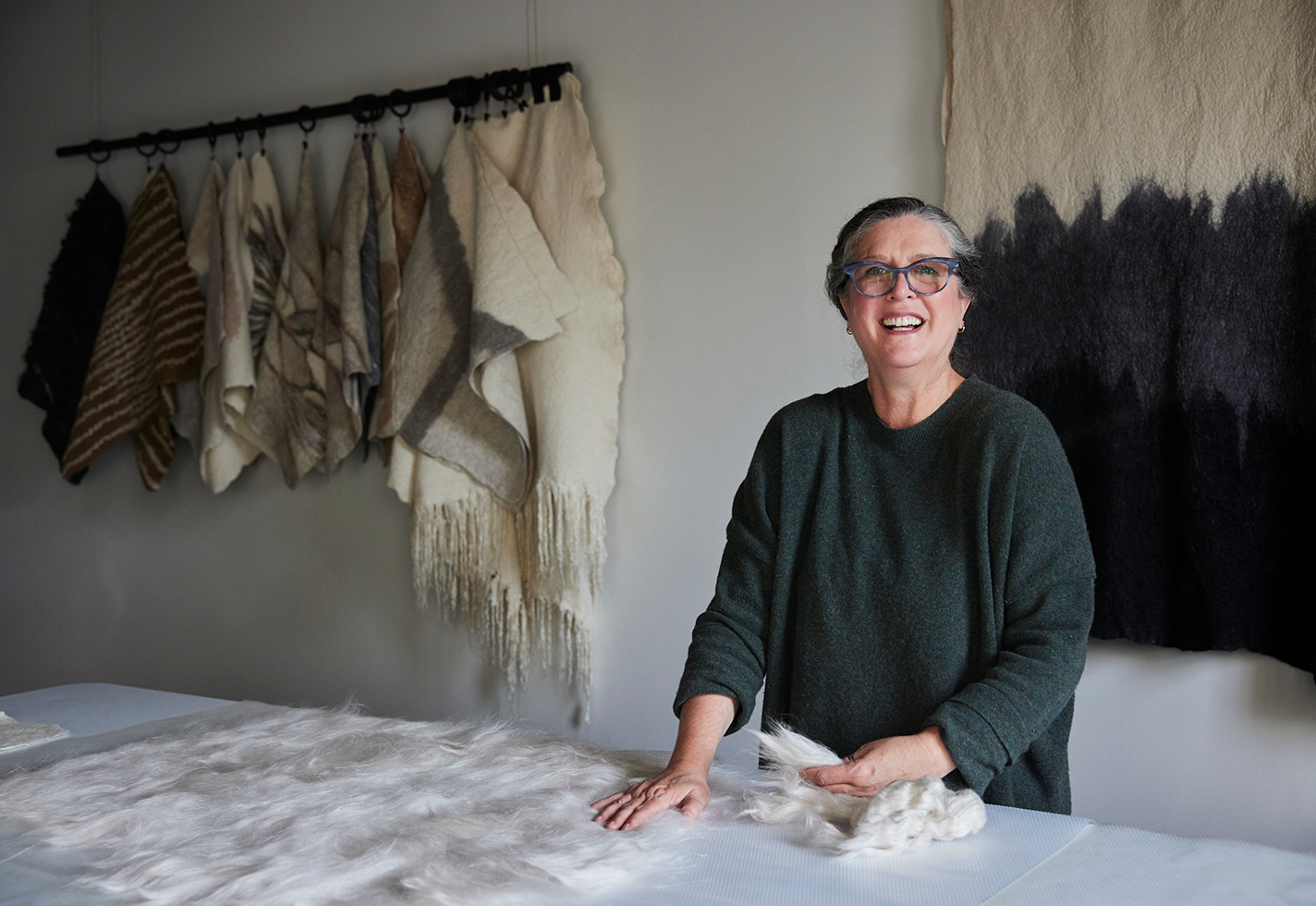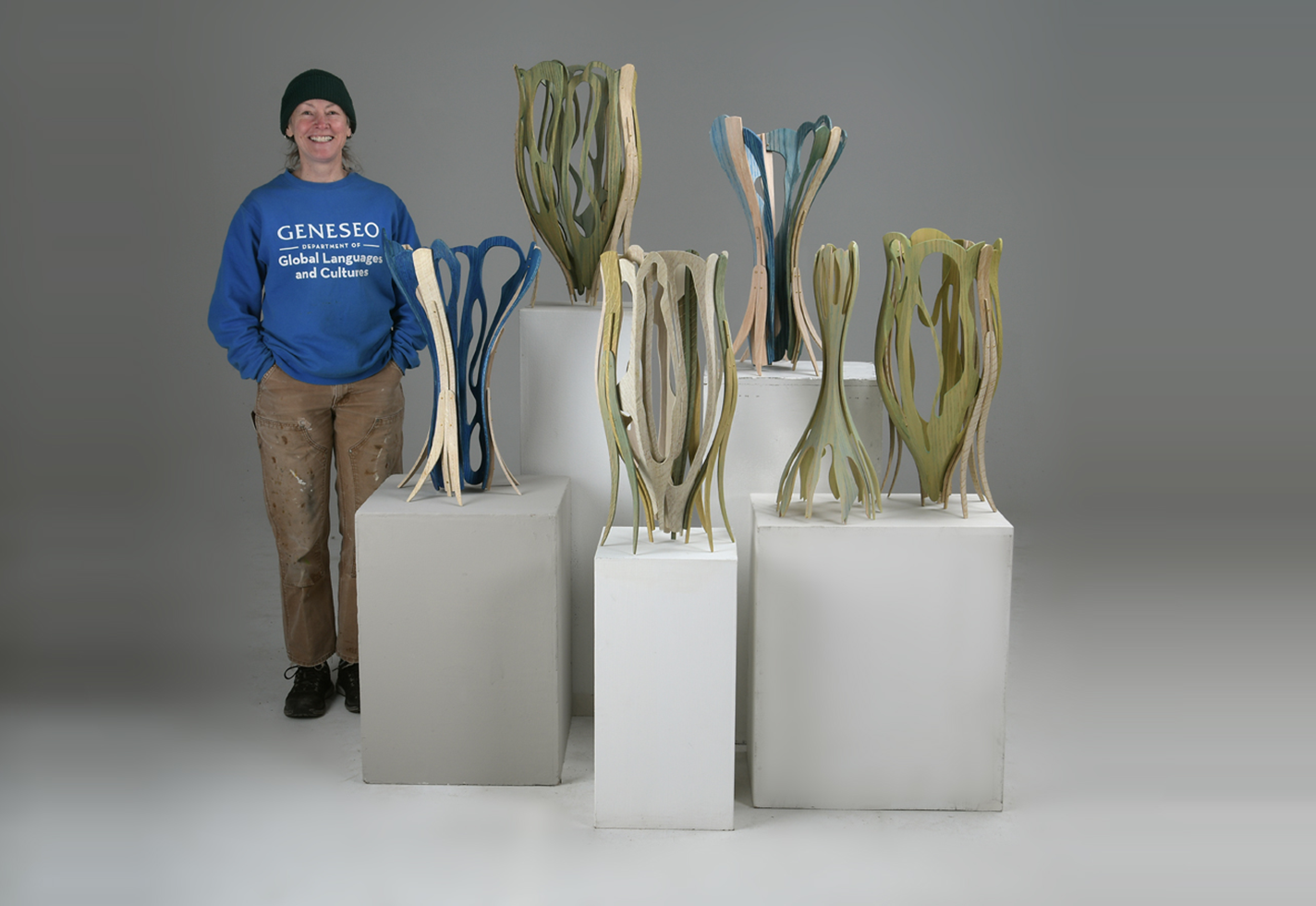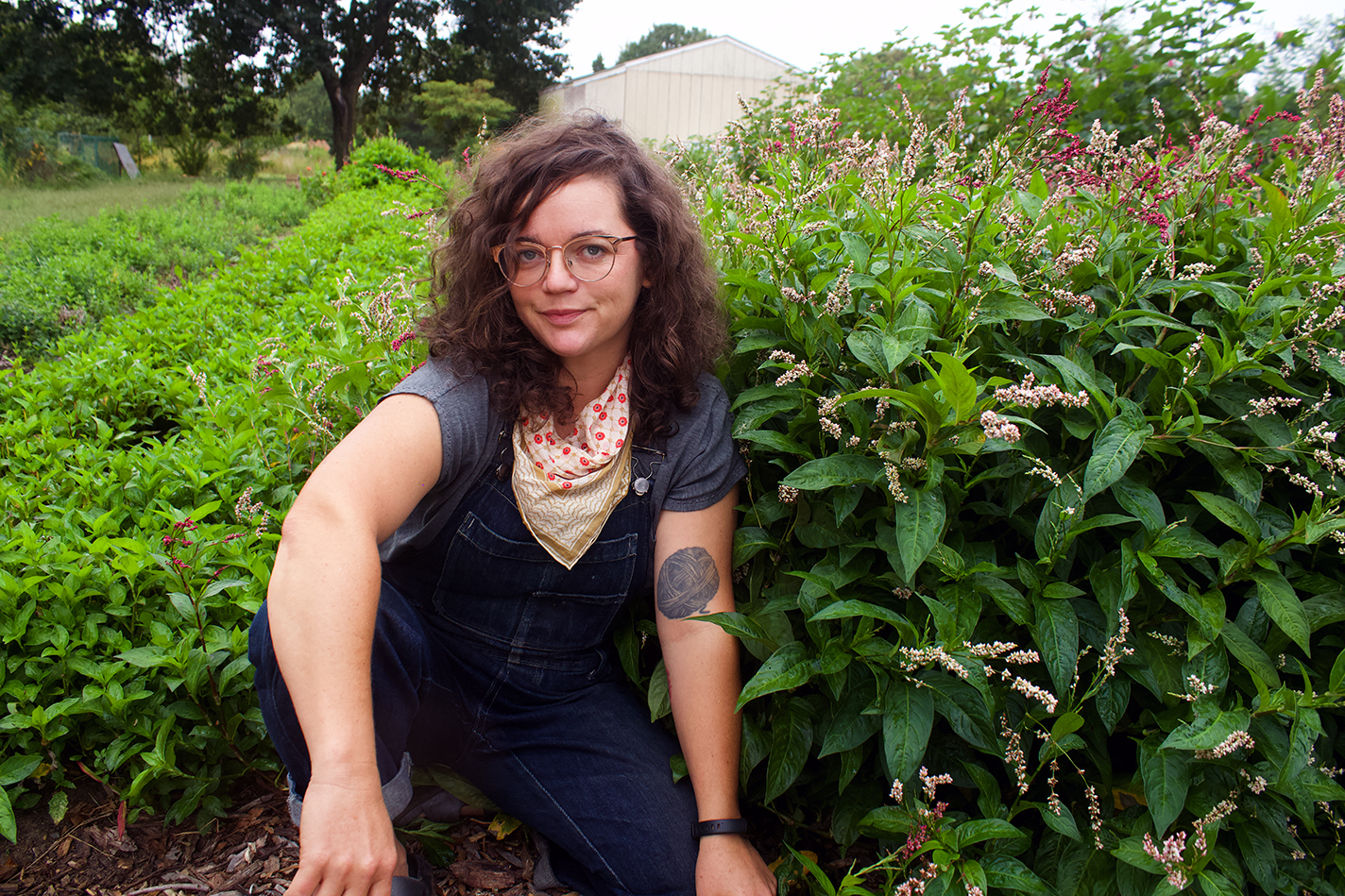So Young Park found the creative jolt for her metalsmithing in glass. While visiting Boston in the early 2000s, the artist saw the Ware Collection of Blaschka Glass Models of Plants at the Harvard Museum of Natural History, a display of famed models of cut flowers and leaves so scientifically accurate they were originally studied in botany classes. Park was especially struck by the cross sections and isolated views of plant parts, from ovaries to stamens, that revealed otherwise hidden geometries. “I didn’t think the inside of plants could be so beautiful,” she recalls. “I was kind of shocked.”
At the time, Park, who was born in South Korea, was an MFA student in metal and jewelry design at the Rochester Institute of Technology in upstate New York and had largely been making figurative works out of silver and copper. The Blaschka display compelled her to build more organic shapes and experiment with surface texture. “My forms, concept, everything was totally upside-down, changed, in America,” she says from her studio in Cheonan, one hour from Seoul.
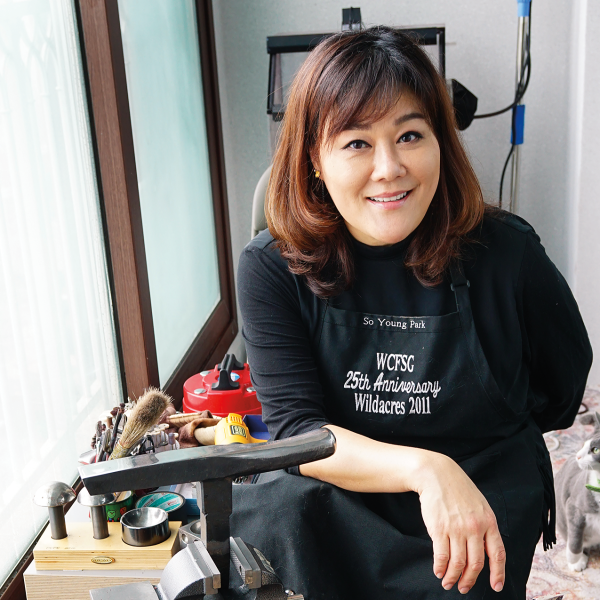
Park in her studio in Cheonan, South Korea.
